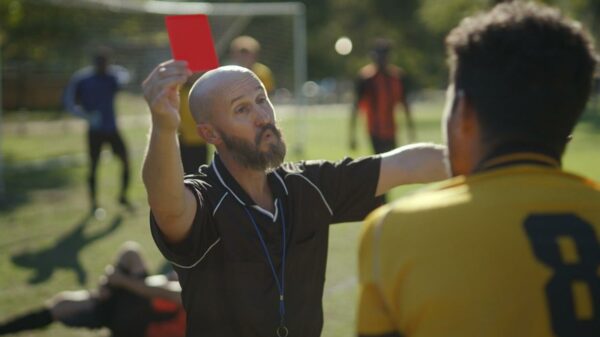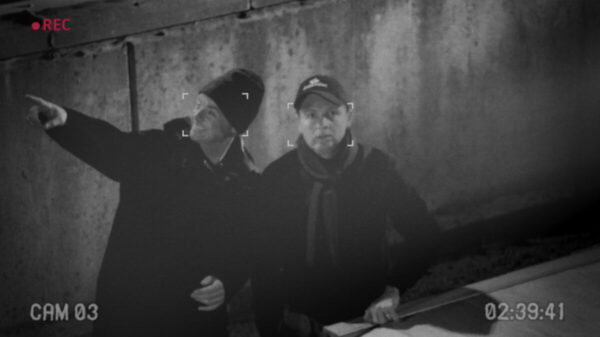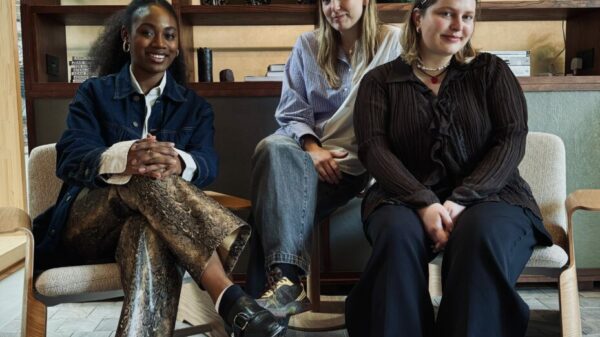The typical starting salary in advertising is currently around £25,341. But with the average cost of renting a room in London now around £971 a month and the price of food and drink rising by 25% since January 2022 it begs the question – is marketing still a viable career option for those who don’t have parents living within commutable distance of the Big Smoke?
That question is what went through the minds of several agencies, beginning with Pablo, who introduced the ‘Pablo Living Wage’ which now sees all of its employees earning a minimum of £30,000 a year.
This was quickly followed by St Luke’s and then Neverland, who also upped their starting salaries to £30,000 a year in a bid to soften the cost-of-living crisis.
While still below the average graduate salary of £33,229, this is far better than their advertising counterparts, with many hoping that the living wage initiatives will help open up the industry to a more culturally and economically diverse workforce.
Pablo: Creating ‘A breathe out moment’
The move was initially sparked by Pablo managing directors Hannah Penn and Harriet Knight, who saw a rising number of people joining calls in thick jumpers and coats because they couldn’t afford to put their heating on.
“The conversations all kind of dovetailed into a moment where, as a management team, we figured it’s going to mean a bigger financial commitment, but we think we can do something for people today who are struggling,” Penn explains.
“On every level, the stress of energy, the stress of the costs of goods, the rental market being what it is, the cost-of-living was really being felt, but especially at junior level,” she adds. “And how can anyone create fun storytelling if they’re worried about what they are going to be paid each month?”
“You have to take away as many known contributors of stress from the word go because it cripples creative industries and just stops people getting their best work done,” adds Knight.
She says the extra pay has acted as almost a “breathe out” moment for people who were “really worried about making ends meet”.
“We had several members of staff in tears just saying, ‘you have no idea what this is going to mean to us’.”
The sentiment is echoed by CEO of fellow indie agency St Luke’s, Neil Henderson.
“Other sectors like accountancy, banking, their salaries had all gone up and advertising just hadn’t,” Henderson says.
“We decided that £30,000 was the minimum we needed to attract all the kinds of talent we needed, beyond just people with parents who already lived in London.”
St Luke’s: ‘It just wasn’t feasible anymore’
Henderson points out that the agency had already taken measures like a work-around for one of their interns, allowing him to come in at 10am instead of 9am, in order to make it affordable to travel in.
“We could do that for him as an intern, but it’s not ideal,” Henderson points out.
“If we were going to employ him full time, which wouldn’t have been much more than the wage he was on, having an account exec not being able to come in at 9am just was ridiculous. It was becoming clear that it wasn’t feasible anymore.”
The agency made the announcement of the new starting salary just before Christmas 2023. As one of the junior designers at St Luke’s, Edie Paskin was among those who benefited from the news.
“It really does make a huge difference. Having that extra security just makes you feel lighter,” she says.
“I’m lucky enough not to have to pay rent but now I feel I can see a point where I could eventually move out which is really exciting. The extra money you have puts you in a really good place to feel excited about the future, rather than dreading the cost of living going up.”
Subscribe to Marketing Beat for free
Sign up here to get the latest marketing campaigns sent straight to your inbox each morning
One in, one out? ‘It just becomes a manufacturing process’
Paskin also highlights that many of her friends within the industry find themselves often moving around.
“I think you definitely feel pressure to jump around for more money. I think there’s a culture of asking what else is out there because you’re chasing that extra few hundred pounds a month,” she says.
“It obviously doesn’t foster loyalty or a good culture if you’ve got people always looking to move around. Helping people feel financially secure is going to go a long way to making people feel comfortable.”
St Luke’s joint chief creative officer Richard Denney is adamant about the negative impact this has on clients: “It’s a small industry and word spread arounds quickly if the culture is wrong, not just for you as an agency but for your clients.”
“It’s our responsibility to equip our younger talent with the tools they need to be future leaders and to do the next thing. If we don’t do that we haven’t done our job and it just becomes a manufacturing process where people are looking for the next thing, and they’re just churned out and you get nowhere,” Denney continues.
“Talent lies with the younger generation, and clients absolutely want to see that,” he adds.
Director of recruiting consultancy Headliners Group Clare Davies puts the facts about retention even more starkly: “People are opting for the digital side rather than the creative side, because it pays more.”
Outside of supporting younger workers just starting out their careers, both agencies have also looked at ways to keep the right workers of all ages – St Luke’s has taken onboard a 65-year-old intern who had a lot of experience but wanted to learn more about other aspects of the industry, which Henderson says has provoked positive reactions from clients.
Pablo also has policies in place that provide equal paternity and maternity leave to avoid women in particular being set back in their careers when they start families.
But as far as getting the right talent in goes, the responsibility can’t lie solely with agencies or recruiters to solve the problem. There’s agreement that it goes back to teenagers not knowing about advertising as an option, or not seeing it as for them.
“We need to get to younger kids coming up through education so they’re aware of the different opportunities because I think that’s a big barrier. It’s the knowledge gap on the candidate side,” says Knight.
St Luke’s Flying Start initiative is directed at giving people from ethnic minority backgrounds a taste of different areas of agency life. The agency also works with social mobility charity The Brokerage to get young people interested in the sector.
Meanwhile Pablo has an entry level programme called the Pablo Starters, which acts as a feeder for those from non-advertising backgrounds.
Crucially, in a shaky economy, agencies are starting to feel the pinch when it comes to talent and retention, and are beginning to see the need for action when it comes to pay and diversity of all kinds.
The UK creative economy is worth £108 billion but if it’s to remain competitive, ultimately it needs backing. As Henderson puts it: “We got rid of manufacturing, we can’t get rid of the creative sector as well.”









